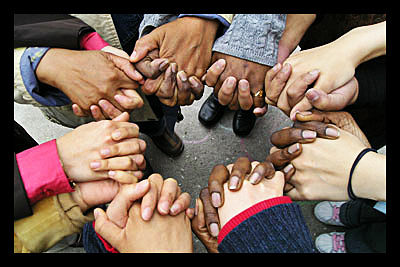Why “Women’s Issues” Are Actually Human Issues

Many political campaigns, government agencies, and non-profit organizations categorize a series of topics as “women’s issues.” These issues generally address subjects such as birth control, reproductive rights, and women’s access to education and equal pay. Yet, these issues affect more than just women—they affect everyone. Women’s issues are actually human issues.
In many parts of the world, women are viewed as inferior to men. While boys are encouraged to receive an education, girls are often removed from school to take care of the home, losing out on an education that could increase a woman’s pay and her household’s earning potential in the future. At a microscopic level, a reduced household income increases the chance of a single-family living in poverty. However, when entire cultures neglect the role of women as productive members of society, not only do individual households suffer, but entire economies lag, negatively affecting everyone.
Even in societies where women are allowed to work, women are undervalued for their skills and labor. They are concentrated in “insecure jobs in the informal sector with low income and few rights.” According to the Global Poverty Project, “women work two-thirds of the world’s working hours, produce half of the world’s food, but earn only 10% of the world’s income and own less than one percent of the world’s property. On average, women earn half of what men earn.” This pay reduction, while better than a complete ban on allowing women to work, also contributes to poverty. When women earn less, their family earns less, increasing a household’s chance of living in poverty.
Because many areas of the world limit a woman’s access to education and job opportunities, women are often viewed as inferior to men and are left powerless in their societies. Throughout the globe, “three million women die each year because of gender-based violence, and four million girls and women a year are sold into prostitution. One in five women is a victim of rape or attempted rape in her lifetime.”
Societies are better off economically and socially when women are valued, are allowed to receive an education, are presented with equal work opportunities, and are protected from abuse. In areas where women are educated, fertility rates are lower, helping to reduce overpopulation and contributing to a higher GDP per capita. Children are also better cared for and healthier when their mothers are educated. And as stated before, women with access to education and equal work opportunities are able to earn higher wages, reducing the chance of their family living in poverty and improving overall economic production.
“Women’s issues” are truly human issues because they affect everyone. The role that women play in society not only affects sisters, mothers, and daughters, but also their brothers, fathers, sons, and husbands. By enabling women with the tools they need to be safe, healthy, and productive members of society, the entire world will be a better place.
– Jordan Kline
Sources: Global Poverty Project, UN Women
Photo: Current Gender Issues
